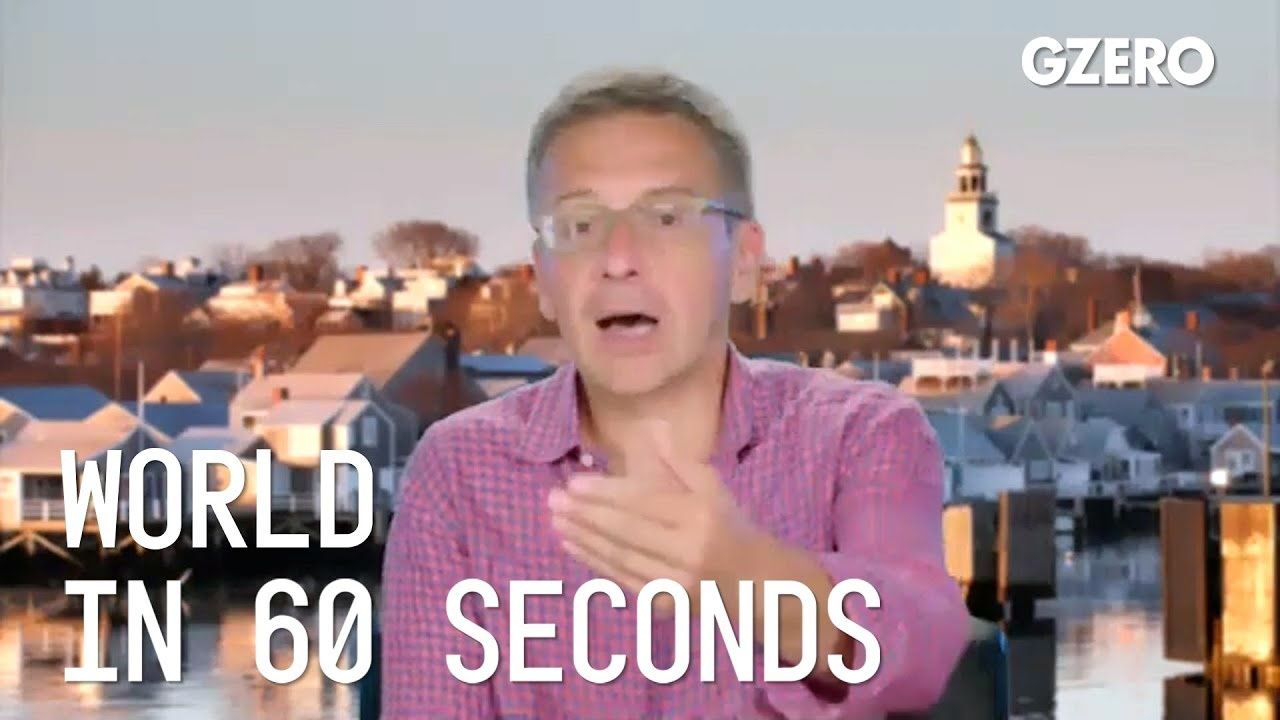
Ian Bremmer brings you his perspective on this week's World In (More Than) 60 Seconds:
Notre Dame withdrew from hosting the first presidential debate this fall. What does this mean for the debates in general?
I don't think it means very much. I mean, it obviously means that coronavirus is still very much with us and President Trump is in crisis mode. I mean, we just had Major League Baseball opening day, in a 60-game season, and some over a dozen players and coaches of the Miami team are found to have coronavirus. And so, they had to suspend some games. And the Yankees and Phillies are suspending a game. And, you know, it's all a mess, right? And whether or not we're even going to be able to have baseball is a question, so clearly, the presidential debate is going to be affected. You're not going to have a big live audience. It's going to be small and socially distant. But it is interesting that at this point, both Trump and Biden are planning to move ahead with a series of debates, given how unprecedented this campaign has been with it all about Trump and Biden essentially suspending anything that looks like a rally. A lot of the campaigning happening from videos from his basement. It was conceivable that one or both sides would disagree on format, number, or even whether they should have presidential debates. That's not going to happen. I do think that the expectations from Trump of Biden have been set so low, so sleepy, so low energy, so incapable, so incoherent, that if Biden has a reasonable showing, he's likely to come off comparatively a little hit. And that's, again, Biden's strategy is, this needs to all be about Trump. And so far, Trump is making that comparatively easy for him to do.
India is blocking more Chinese apps. How serious are tensions between the two countries?
Well, I mean, they're not serious in the sense that these are two nuclear powers, and no one's really concerned that they're going to go to war against each other. In other words, India-Pakistan years ago when they had their serious tensions in the months after 9/11, you'll remember people were concerned, might we be at the precipice of a regional nuclear war? Nobody is thinking about that with the Indians and the Chinese. Chinese massively outgun the Indians militarily and the Indians are standing down militarily. But the Indians are leaning in economically. It is largely about Indian nationalism. It's very widely popular for Narendra Modi in India, much as the unilateral decision to abrogate the autonomy for Kashmir was very popular domestically. And so, I think the economic tensions between the two countries are likely going to grow a lot of insecurity. And on the tech side is where you're particularly seeing it.
What's going on in Malaysia?
Well, the former prime minister, Najib, has been found guilty of corruption. About $10 million looks to have been siphoned to him illegally through the 1MDB, the former sovereign wealth fund that Goldman Sachs got caught up in, and they have to pay big fines and the US government's involved, and it's all really ugly. It's first time a former Malaysian prime minister has been so sentenced for corruption. There will be an appeal, surely, but I don't think it's going anywhere. The defense has been pretty bad. Doesn't really lead to a lot of instability in Malaysia, though.
How is this year's Hajj different from past pilgrimages?
Well, not a lot of people, right? I mean, you know, basically a tiny number of folks being allowed to the Hajj. And this was quite controversial in Saudi Arabia, but they saw that in other countries where they weren't suspending mass prayers, Pakistan in the early days in particular, you saw a massive explosion of cases. There's real concern about that in Saudi Arabia and so one of the most conservative societies in the region, but with a leader, Mohammad bin Salman, the crown prince, who is very happy to take on religious authorities on issues that he thinks are problematic for Saudi economic development, like, for example, ending the autonomy for the military police, the religious police who no longer have the ability to, you know, sort of walk the streets and harass citizens for breaches of religious law, that's been a pretty meaningful change, saying that we're going to shut down the Hajj to all but a few pilgrims because we want to make sure that we don't have further outbreak, something that other Saudi leaders would have had a harder time with, MBS did not. So, you know, it's a dual-edged sword, as it were, in Saudi Arabia. There've been a lot of problems on human rights with this leadership, but also a lot of ability to go after the religious authorities. And on this front, the Saudis will likely benefit from it.